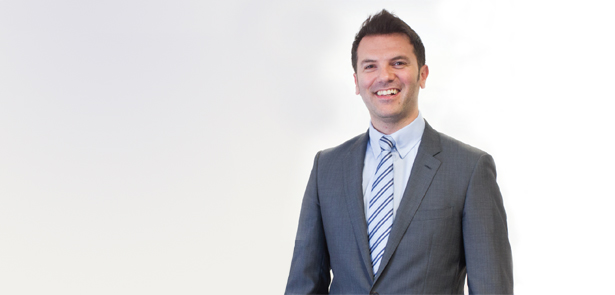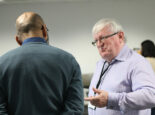Recruit Mint: let’s get to work…

Few factors give a clearer indication of the health of the economy than the level of employment – and few people are better placed to comment on it than those working in the recruitment sector. Toby Venables talked to Mark Burton, co-director of Peterborough-based agency Recruit Mint, about upturns, the state of recruitment, and some reasons to be cheerful
‘The situation in the last six to eight months is that the market has flipped on its head,’ says Mark Burton, director of Recruit Mint. ‘There are many more jobs out there than there are candidates now.’ This is the good news – indisputable evidence that the upturn is real. While the general buzz has been that Peterborough rode the recession pretty well, to have it from someone with a clear overview of the state of things – and the stats to back it up – is reassuring. And that trend appears to be reflected nationally. ‘There is a report recently out that states this is the biggest jobs boom in 25 years,’ says Mark. ‘In three months, 146,000 people found jobs in the UK.’
So why has Peterborough, in particular, been so robust? ‘The population is growing massively, and obviously it’s very multicultural. The fact is, if it wasn’t for the multicultural element moving into the city, I’d probably be out of a job. The more people we can get to the city, the more opportunities there are.’ This should not be taken to mean it’s just lower end jobs that are booming, however. ‘With the businesses we’ve got now, our average pay rate here is quite a bit higher than we were dealing with before. We’re still dealing with the lower end staff, but we’re also dealing with a lot of higher end staff as well – everything from minimum wage to £70k positions.’
The city hasn’t just ridden the recession – it’s defied it
What’s changed? Well, culturally the city has boomed. It emerges from recession having not only developed its city centre, but with a growing roster of annual events of international standing – the Perkins Great Eastern Run, the Heritage Festival, The Willow Festival and Arts Fest, the Beer Festival, and more – as readers of this magazine and its sister publication The Moment will know well. The city hasn’t just ridden the recession – it’s defied it; a demonstration of tenacity and confidence that presents an inspiring image of the city to the outside world, and promotes further positive growth. All this has helped the city to become more attractive a prospect to people from outside. ‘I have a candidate who has just relocated here from Germany,’ says Mark. ‘Her reasons for moving here were because the job fitted and it’s only 45 minutes from London.’ What it seems to suggest is that Peterborough has put itself far more firmly on the map in the last 5-10 years – nationally and internationally.
‘We are dealing with more clients on a weekly basis than I have ever dealt with in recruitment’
The dynamic of its business life, and the nature of its employment, has shifted, too. ‘The city has been heavy on manufacturing in the past, but the manufacturing has gradually died out and distribution has moved in,’ says Mark. ‘Actually, if we go back 15 years, I think there were actually more job opportunities locally then than there are now, because there were more big employers – Sodastream, Pearl Assurance and so on. There are not so many of those left now, as several have moved out. We do have Amazon, which employs around 3,000 people for the seasonal period, but for the rest of the year not so many. But there are far more smaller businesses. That’s the difference. As a result, we are dealing with more clients on a weekly basis than I have ever dealt with in recruitment – dealing with clients at the level of ones and twos rather than tens and twenties. More businesses are moving to the area, and there’s definitely more investment in terms of industrial estates and infrastructure.’
Peterborough is certainly strong on infrastructure; when the city was expanded in the 1970s, it was done with vehicles firmly in mind. That may make it a little less pretty than neighbouring Cambridge, but when you’re looking to set up a business that people can actually get to, it starts to seem more attractive. Mark set up his own business with fellow director Aaron Bowes in the midst of the recession – September 2012. The job market was undeniably a tougher place back then, but recessions are odd beasts, and not everyone suffered as you might expect. When… [cont]















